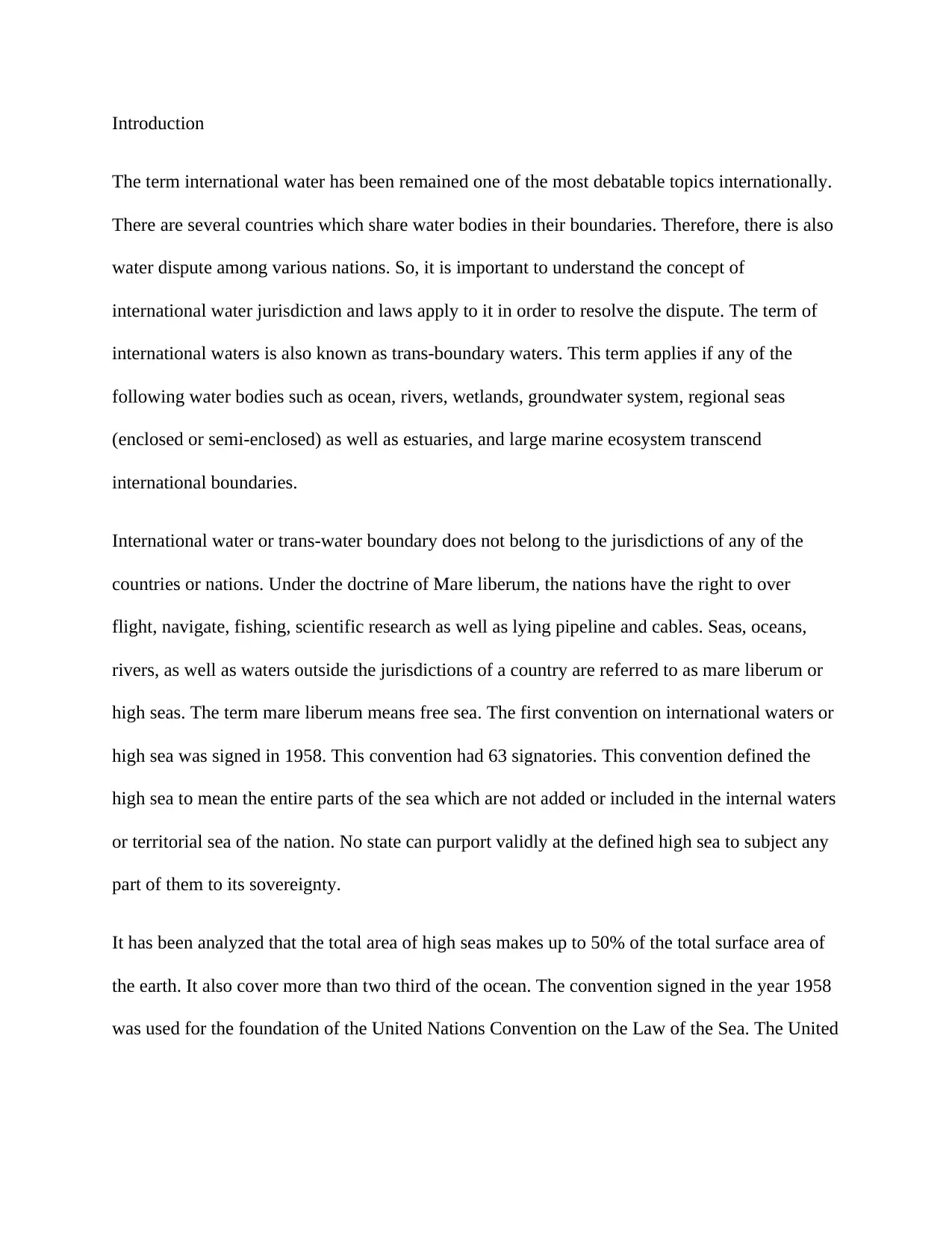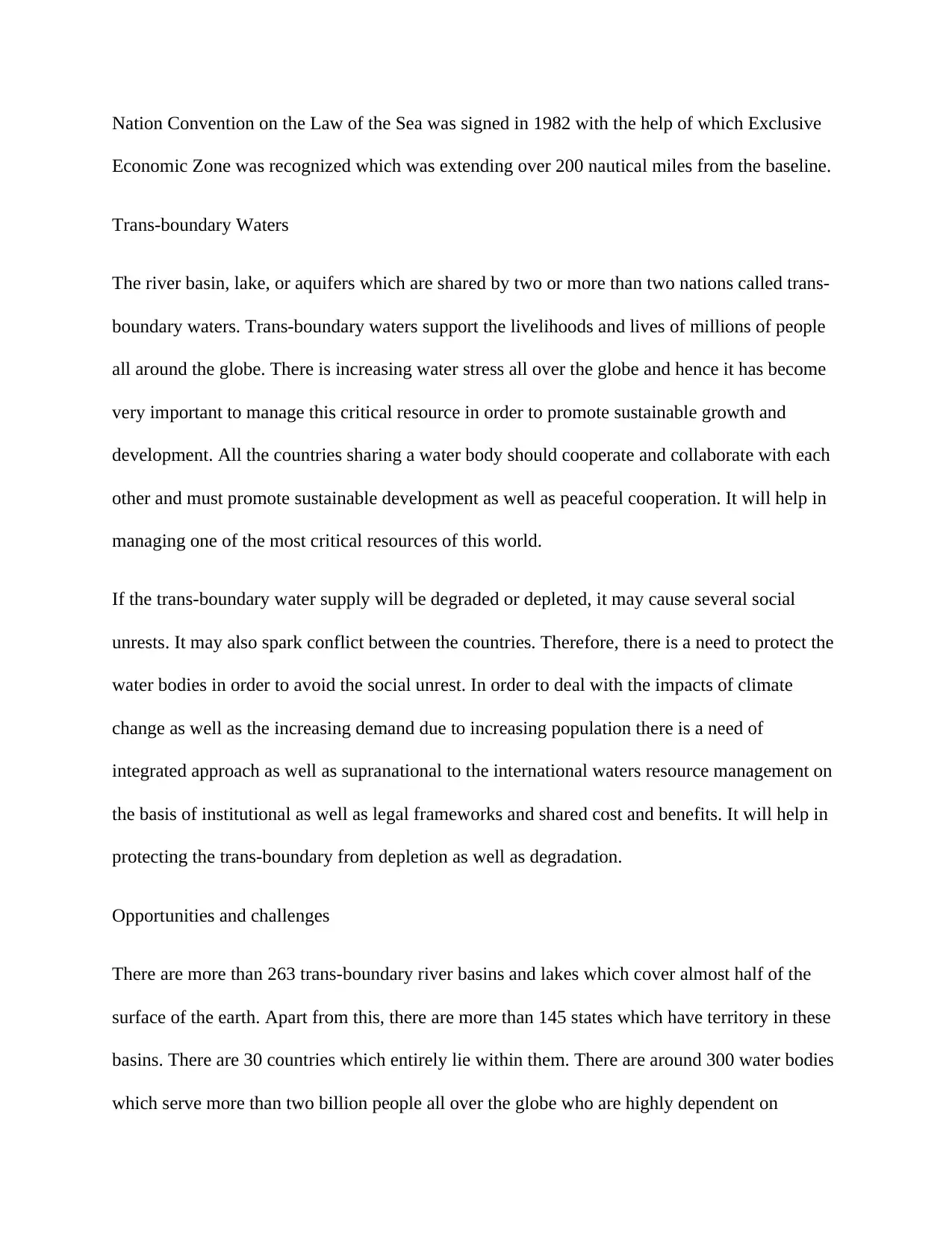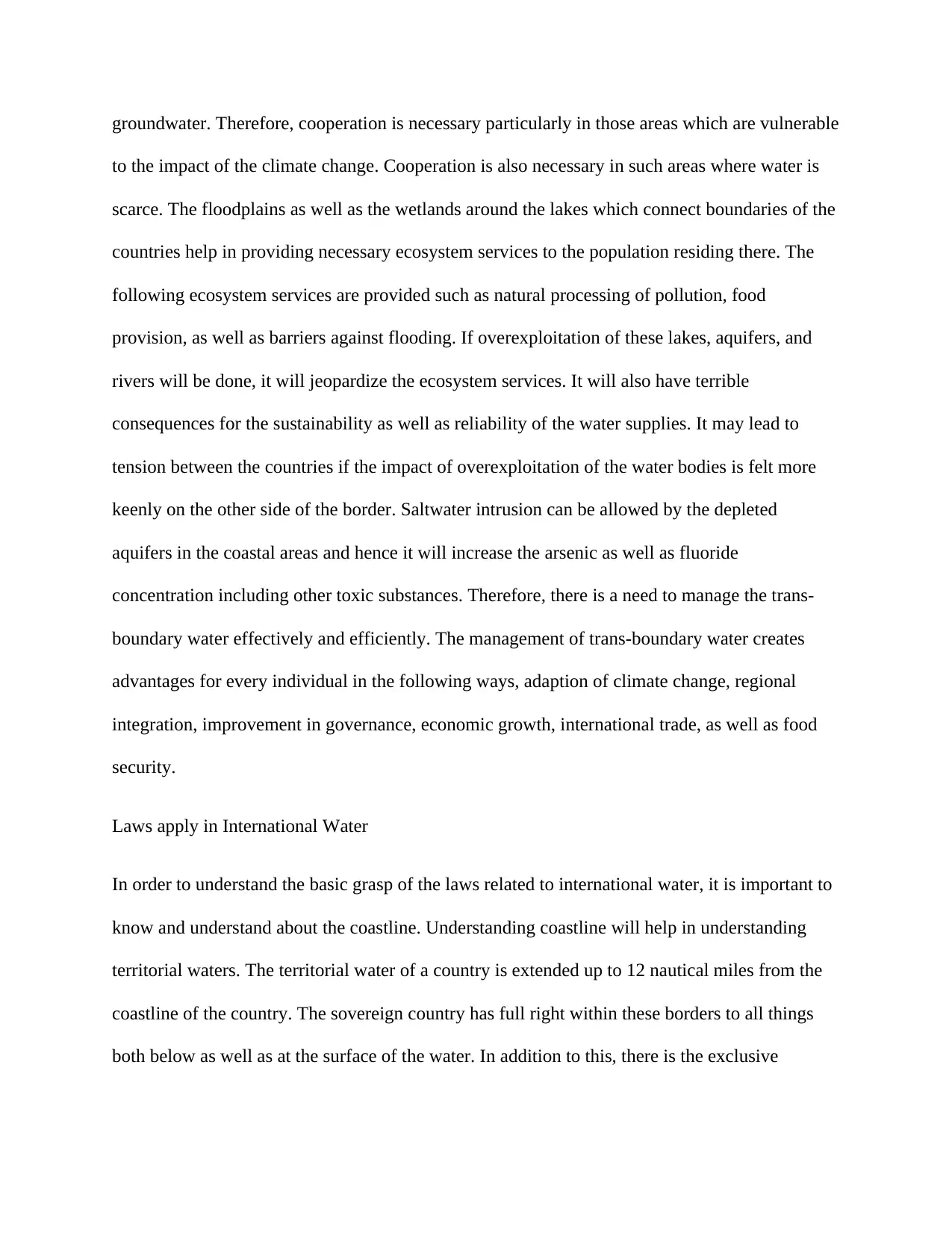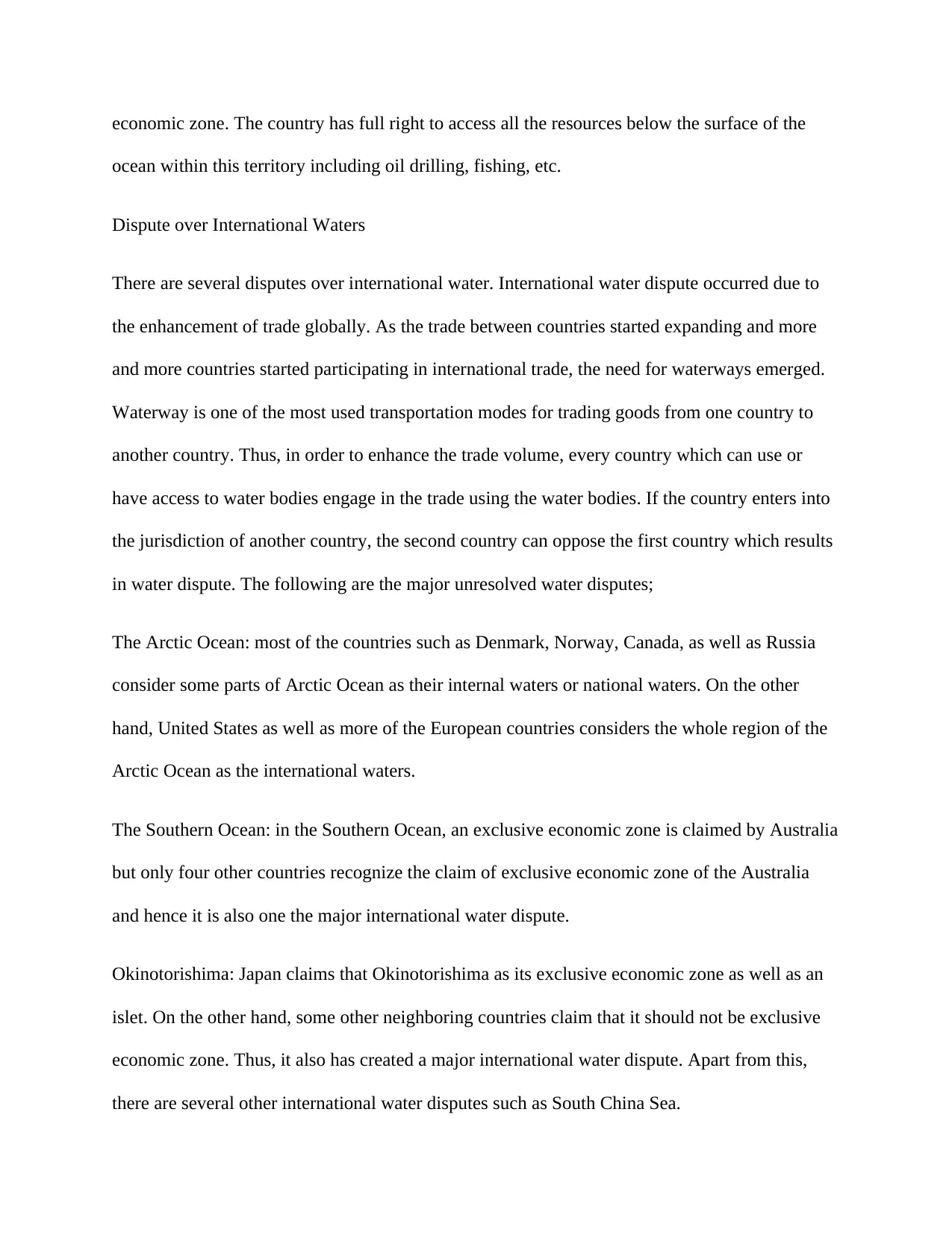The concept of international waters, also known as trans-boundary waters, refers to water bodies that transcend national boundaries, including oceans, rivers, wetlands, and groundwater systems. International waters do not belong to any country's jurisdiction, and nations have the right to navigate, fish, conduct research, and lay pipelines and cables under the doctrine of Mare liberum. The United Nations Convention on the Law of the Sea recognizes Exclusive Economic Zones extending up to 200 nautical miles from a country's baseline. Trans-boundary waters support millions of people globally and are crucial for sustainable development, but their degradation or depletion can cause social unrest and conflict between nations. Effective management is necessary to promote cooperation, adapt to climate change, and ensure food security.
![[object Object]](/_next/static/media/star-bottom.7253800d.svg)
![[object Object]](/_next/static/media/star-bottom.7253800d.svg)




